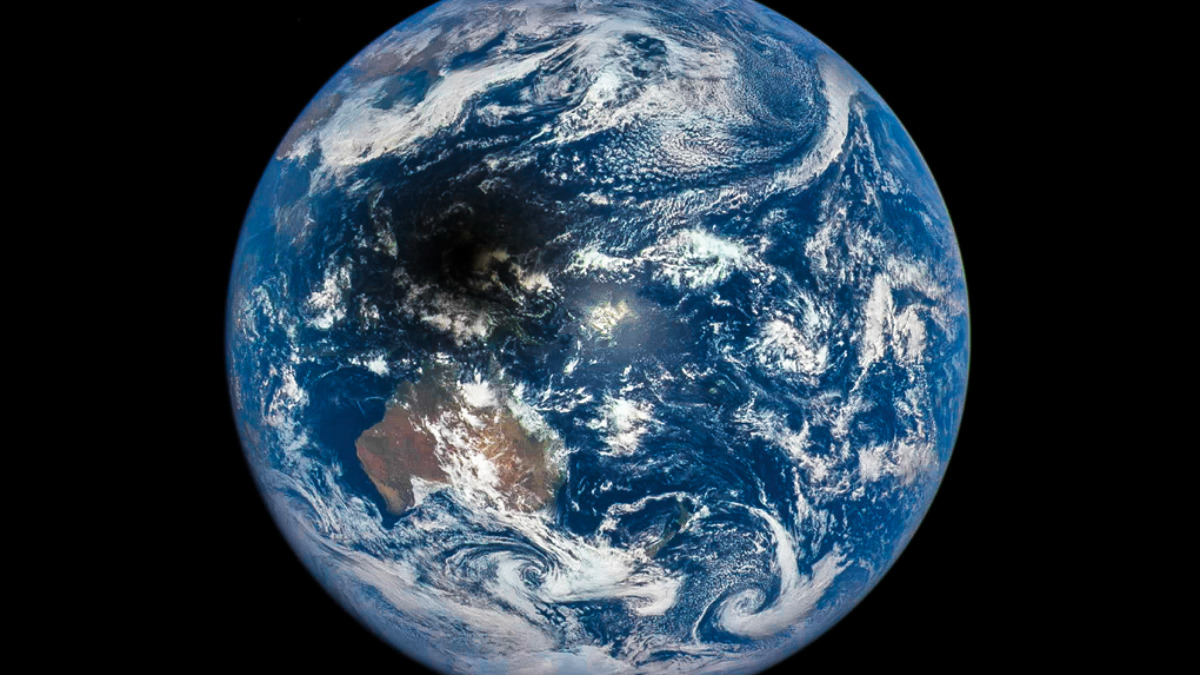Why everyone’s talking about the Age of Man
Experts make case for new chapter of Earth’s history called the Anthropocene period

A free daily email with the biggest news stories of the day – and the best features from TheWeek.com
You are now subscribed
Your newsletter sign-up was successful
A panel of scientists has validated a new geological era called the Anthropocene, meaning “Age of Man”.
After spending a decade gathering evidence, the Anthropocene Working Group, chaired by Professor Jan Zalasiewicz of Leicester University, concluded that the term was suitable to express the profound impact that humans are having on the planet.
If they can persuade the International Commission on Stratigraphy (ICS) to approve the new name, “the result would be literally epoch-changing”, says The Guardian, which notes that “a new chapter of Earth’s history would need to be written”.
The Week
Escape your echo chamber. Get the facts behind the news, plus analysis from multiple perspectives.

Sign up for The Week's Free Newsletters
From our morning news briefing to a weekly Good News Newsletter, get the best of The Week delivered directly to your inbox.
From our morning news briefing to a weekly Good News Newsletter, get the best of The Week delivered directly to your inbox.
What happened?
The term “Anthropocene” was first coined by Nobel Prize-winning chemist Paul Crutzen in 2000. It combines “anthropos”, the Greek for human, and “cene”, the suffix used in names of geological epochs, to suggest that Earth’s geological record has been transformed by humanity.
Crutzen argued we were no longer in the Holocene epoch, which began between 12,000 and 11,500 years ago at the close of the Paleolithic Ice Age, but rather in this new Age of Man.
In 2008, Zalasiewicz - a geologist specialising in stratigraphy, the study of rock layers and layering - was asked to assemble a team of experts to gather evidence to determine if this theory was correct.
A free daily email with the biggest news stories of the day – and the best features from TheWeek.com
This month, Zalasiewicz’s team announced that they were in agreement with Crutzen, and that they had defined a more specific date when humans began leaving their permanent mark on the planet - the 1950s.
And the response?
“The name has been the subject of intense debate among experts,” says Newsweek.
Some stratigraphers have argued that the term is more about politics and pop culture than hard science.
Others point to the relatively short amount of time that humans have been on Earth. Stanley Finney, secretary-general of the International Union of Geological Sciences, believes a “negligible amount of ‘stratigraphic content’ has amassed since the 1950s”, says The Guardian.
“Geologists are used to working with strata several inches deep, and Finney thought it was excessively speculative to presume that humans’ impact will one day be legible in rock,” the newspaper reports.
But Zalasiewicz insists it will, telling Nature.com: “The Anthropocene works as a geological unit of time, process and strata. It is distinguishable. It is distinctive.”
What next?
The Anthropocene Working Group will submit a proposal to the ICS by 2021 in a bid to get the term formally approved.
The commission oversees the International Chronostratigraphic Chart, a timescale of the planet’s 4.6 billion-year history, divided into phases, such as the Jurassic period. “Modifying it is a slow and tortuous process,” says The Guardian.
First, Zalasiewicz must pinpoint the “golden spike”, an exact time and location that best marks the start of the phase.
This “may encompass the hydrogen bomb tests of the 1950s, a spike in the burning of fossil fuels, or the emergence of widespread poultry farming”, says Earth.com. And it must be “measurable in the geological record in rocks, lake sediments, ice cores, or other formations in order to qualify as the sign of a new epoch”, adds the science news site.
Zalasiewicz has admitted previously that there are lots of options. “We are spoiled for choice,” he told Paris-based news agency AFP in 2016. “There’s a whole array of potential signals out there.”
-
 Moltbook: The AI-only social network
Moltbook: The AI-only social networkFeature Bots interact on Moltbook like humans use Reddit
-
 Judge orders Washington slavery exhibit restored
Judge orders Washington slavery exhibit restoredSpeed Read The Trump administration took down displays about slavery at the President’s House Site in Philadelphia
-
 Kurt Olsen: Trump’s ‘Stop the Steal’ lawyer playing a major White House role
Kurt Olsen: Trump’s ‘Stop the Steal’ lawyer playing a major White House roleIn the Spotlight Olsen reportedly has access to significant U.S. intelligence
-
 Epstein files topple law CEO, roil UK government
Epstein files topple law CEO, roil UK governmentSpeed Read Peter Mandelson, Britain’s former ambassador to the US, is caught up in the scandal
-
 Iran and US prepare to meet after skirmishes
Iran and US prepare to meet after skirmishesSpeed Read The incident comes amid heightened tensions in the Middle East
-
 Israel retrieves final hostage’s body from Gaza
Israel retrieves final hostage’s body from GazaSpeed Read The 24-year-old police officer was killed during the initial Hamas attack
-
 China’s Xi targets top general in growing purge
China’s Xi targets top general in growing purgeSpeed Read Zhang Youxia is being investigated over ‘grave violations’ of the law
-
 Panama and Canada are negotiating over a crucial copper mine
Panama and Canada are negotiating over a crucial copper mineIn the Spotlight Panama is set to make a final decision on the mine this summer
-
 Why Greenland’s natural resources are nearly impossible to mine
Why Greenland’s natural resources are nearly impossible to mineThe Explainer The country’s natural landscape makes the task extremely difficult
-
 Iran cuts internet as protests escalate
Iran cuts internet as protests escalateSpeed Reada Government buildings across the country have been set on fire
-
 US nabs ‘shadow’ tanker claimed by Russia
US nabs ‘shadow’ tanker claimed by RussiaSpeed Read The ship was one of two vessels seized by the US military